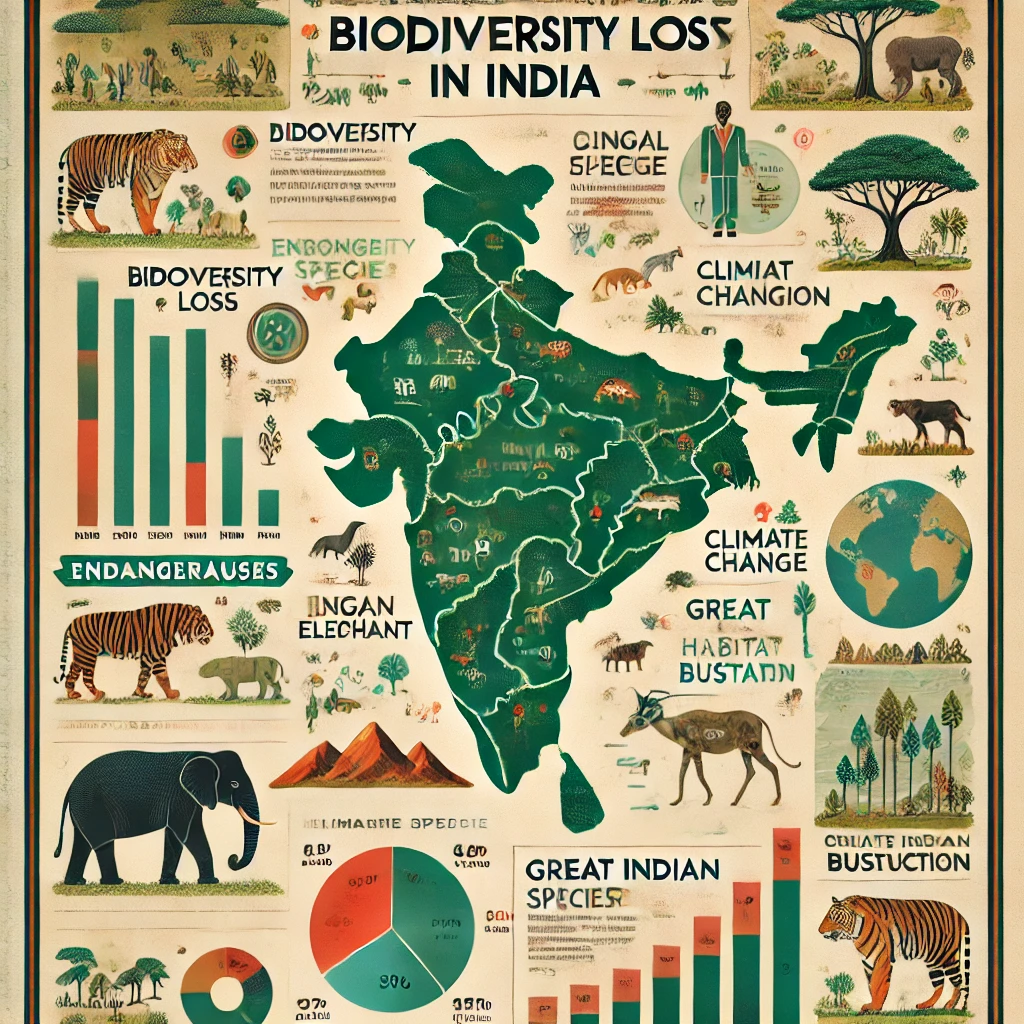India, a biodiversity hotspot, is facing severe biodiversity loss due to habitat destruction, pollution, climate change, and over-exploitation of resources. The country's rich ecosystems, home to over 8% of the world’s species, are under threat. Deforestation, urbanization, and agricultural expansion are the leading causes of habitat fragmentation, especially in the Western Ghats, Sundarbans, and Northeast India. Species such as the Bengal tiger, Asiatic lion, and Indian rhinoceros are endangered due to poaching and shrinking habitats.
In addition, pollution from industrial activities and chemical runoff severely impacts water bodies, while invasive species disrupt local ecosystems. The loss of biodiversity threatens essential ecosystem services, including pollination, water purification, and climate regulation.
Efforts to mitigate biodiversity loss include Project Tiger, Project Elephant, and the establishment of national parks and wildlife sanctuaries. However, continued conservation efforts, stricter laws, and public awareness are critical to preserving India’s invaluable biodiversity for future generations.

